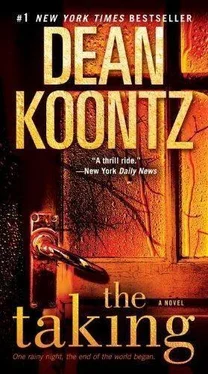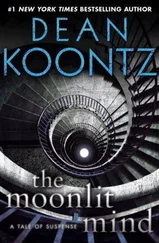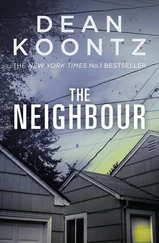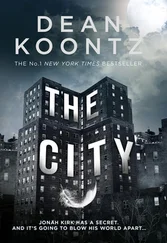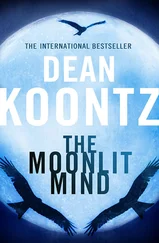Yet no guns had been fired.
So
perhaps a shared madness had seized them, resulting from the unwitting intake of a psychosis-inducing toxin.
Certain rarely encountered exotic molds, including one that made its home in corn, could cause visual and auditory hallucinations, and an entire community could be swept up in the resultant mass hysteria. Some believe this-and not merely religious fanaticism-to be the root cause of the Salem witch trials, for they occurred in the season of the mold.
Molds were a class of fungi, and fungi appeared to constitute a more significant phylum of the invading extraterrestrial ecology than they did in Earth's natural order.
Toxins produced by alien fungi might induce delusions, shared hallucinations, and mass hysteria of a kind and an intensity new to human experience. Temporary psychosis. Enduring madness. Perhaps even homicidal frenzy.
On the tables and on the floor were broken beer bottles. Corona. Heineken. Dos Equis.
Some appeared to have been broken not by accident but with the intent to create weapons. The long neck of a Corona made a serviceable hilt, while the broken body of the bottle provided multiple jagged blades.
On one of these lacerating weapons, Molly found blood. Then on another. And a third. Still wet.
Arterial spatters stained a few articles of discarded clothing, though the modest volume didn't indicate wholesale slaughter or even much of a battle.
As many as forty people were missing. Evidently naked. But
alive? Dead? Where?
Once more Molly held her breath, willed herself to listen through the adamant knocking of her heart, but again she heard nothing.
At the back of the large public room, past all the tables, lay the hallway to the men's and women's lavatories. To the right of the hallway, in the back wall of this main chamber, waited a door marked EMPLOYEES ONLY.
The candlelight in this forward area of the tavern, where the townspeople had been gathered, did not much relieve the shadows at the back of the big room. Yet because of flickering light beyond it, she could see that the door, which had previously been closed, stood a quarter open.
She didn't relish further exploration alone, accompanied by only a host of horrific expectations.
Considering that the rest of her days were likely to be lived in a tangle of enigmas and unfathomables, she could live without knowing the answer to this one mystery. Although she was an inquiring person by nature, it seemed clear that the price of curiosity in this case would be the same for her as for the fabled cat.
One thing kept her from retreating. Cassie.
If the girl still lived, she was somewhere in peril and great distress. She could not be abandoned.
Perhaps coincidence accounted for the fact that Cassie's hair was blond, as had been Rebecca Rose's hair, that her eyes were blue, as had been Rebecca Rose's eyes.
All of her life, however, Molly had believed that there were no coincidences. She was not going to start believing in them now.
In all things, she saw design, though often the meaning of it was difficult to discern. Sometimes it was damn near impossible. As here, as now.
During the writing of a novel, when she came to trust in the reality of her characters, they began to act of their own volition, doing things that charmed, intrigued, and appalled her. Allowing them free will, she rejoiced in their wise choices and in their triumphs, was saddened by their stupidities, meannesses, and often grieved when they suffered or died. In the interest of their self-determination, she chronicled rather than created the events of their lives, seldom pulled their strings, and generally offered them only gentle guidance through signs and portents that they either understood and acted upon or, to their misfortune, refused to recognize.
Here, alone under the roof of the Tail of the Wolf, she hoped for gentle guidance, and if she failed to recognize it when it was given to her, or misinterpreted it, she hoped for some vigorous pulling of strings on her behalf.
The issue was not whether she should retreat or go forward. She could not retreat. She knew her role. She rescued children; she did not abandon them.
If Cassie had been a brunette, with no resemblance to Rebecca Rose, Molly still could not have walked away from her. The question wasn't whether or not to rescue the girl but how best to find her and extract her from this place.
At the back of the public area, the EMPLOYEES ONLY door stood ajar. In the room beyond, flickering light seemed to beckon her.
Maybe this was guidance. Maybe it was a trap.
BROODING ABOUT THE DOOR, KEEPING A WATCH ON it, Molly walked to the end of the bar. She opened the gate and peered into the narrow service area where Russell Tewkes had worked the taps and mixed the cocktails.
She probed with her flashlight. No one crouched there among the brittle, bristling ruins of the shattered back-bar mirror.
A sludge of darkness filled the hall that led to the lavatories. Her beam washed it away, revealing no one.
She considered investigating the rest rooms. The prospect didn't thrill her.
She worried about what size the black fungus had achieved. What capabilities might it possess?
In the women's room, she had never closed the window following Render's departure. Anything might have crept in from this goblin night. In that tight space, the three closed stall doors would offer the challenge of three spring-loaded lids on jack-in-the-boxes packed with surprises designed in Hell.
Besides, the two lavatories together could not have accommodated forty people. She didn't expect to find them in small groups, whether dead or alive, but in one place.
Here again she felt the truth of being at the still point of the turning world, with past and future gathered in the moment.
Although she had resisted this knowledge all her life, had lived determinedly in the future, focused there by ambition, she understood at last that this was the real condition of humanity: The dance of life occurred not yesterday or tomorrow, but only here at the still point that was the present. This truth is simple, self-evident, but difficult to accept, for we sentimentalize the past and wallow in it, while we endure the moment and in every waking hour dream of the future.
What Molly had done thus far in her life was the history of her soul, unalterable, ineradicable. What she hoped to do in the future was of no meaning if she failed to do the wise thing, the good thing, moment by moment by moment, here at the still point, here in the dance of life.
Cassie. Finding Cassie. Moment by moment by moment, finding Cassie, the past would be made, and the future.
With pistol, with flashlight, with trepidation, she cautiously approached the door.
Through the open wedge, she saw six or eight candles in glass globes, deposited on the floor. Salamanders of apricot light crawled the walls.
She nudged the door with one foot, and it swung smoothly inward on well-oiled hinges.
Candlelight revealed no occupants. Neither did the flashlight when, from the threshold, she swept the space with it.
Beyond lay what appeared to be a receiving room measuring approximately twelve by fifteen feet. Windowless. Gray tile floor with a drain in the center. Bare concrete walls.
A wide steel door directly opposite the one in which she stood would open to the alleyway behind the tavern. Cases of beer, liquor, wine, and other supplies had been delivered through it.
In the wall to her right, reflections of candle flames purled in the brushed stainless-steel doors of an elevator.
The tavern didn't have a second floor. The elevator transported supplies down to the basement.
In the wall to her left stood another door, ajar. Logic insisted that she would find basement stairs beyond it.
Читать дальше
Конец ознакомительного отрывка
Купить книгу
